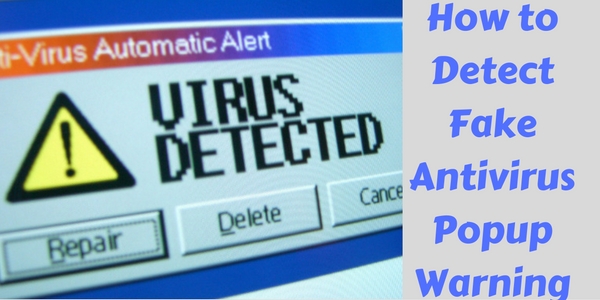How to Detect Fake Antivirus Popup Warning?
Online scams are some of the most deceptive things that human beings have created in the Internet Age. Whether in banking, insurance, lottery, text message or Internet anti-virus pop-up, scams have one thing in common—they are too good to be true. Although many of them can be very convincing, most of them are not match to up-to-date antivirus firewall software programs.
With the continuing popularity of the Internet, some malicious people have managed to device a tool, in the form of fake antivirus pop-up scams, to do harm or to just make fun of others. These scam-induced viruses are called scareware. It is because they cause the computer owners to get alarmed and trick them into responding instantly to the problem without their knowing that they are about to make the problem worse.
The technique is called social engineering. It is where the scammer pops up warning that one’s computer unit has been attacked by some virus. The scammer then offers a remedy – a free downloadable scanner that will eliminate the virus and solve the problem. But, the truth is that the one they are downloading is the virus itself.
For computer users connecting their units to the Internet, it is a must to have antivirus firewall software. But, nowadays, having one is still not enough to secure your computer against these pop-up scams. You must have a watchful eye and knowledge of detecting these scams.
One common characteristic of fake anti-virus pop-up scams is that they interrupt you every now and then. They also appear in increasing number of pop-ups even without an internet connection. Remember that valid pop-ups only exist with an Internet connection. If you are not connected to the Internet, and pop-ups still appear, they might as well be fake.
When you get caught into the trick and you visit their website, the computer would assume to run a scan on your computer. A list of infections then comes out. You would want to delete these infections. But as you click the Delete or Remove Infections button, you are informed that you are only using a trial version. Then they advise you to buy or even download the full version for free so that you can continue using their services. The solution here is never to download anything if you are not sure of or if its source is not reliable. Always be a wise Internet user and computer owner.
When your computer reports a fake virus attack, check whether the warning is coming from your own anti-virus software. If it is an outsider anti-virus who supposedly detected the virus, just ignore it. Even if these fake antivirus pop-ups come with trustworthy sounding names like Virus Shield XP2009 or Anti-Torjon Security, do not believe it unless it is your own antivirus firewall software that warns you.
Read Next : How Hackers are Tricking You to Get into Your Computer




Pingback: 5 Questions to Ask Before Hire App Developer - Online Tech Secret
Pingback: 5 Common Computer Network Problem with their Fixes - Online Tech Secret